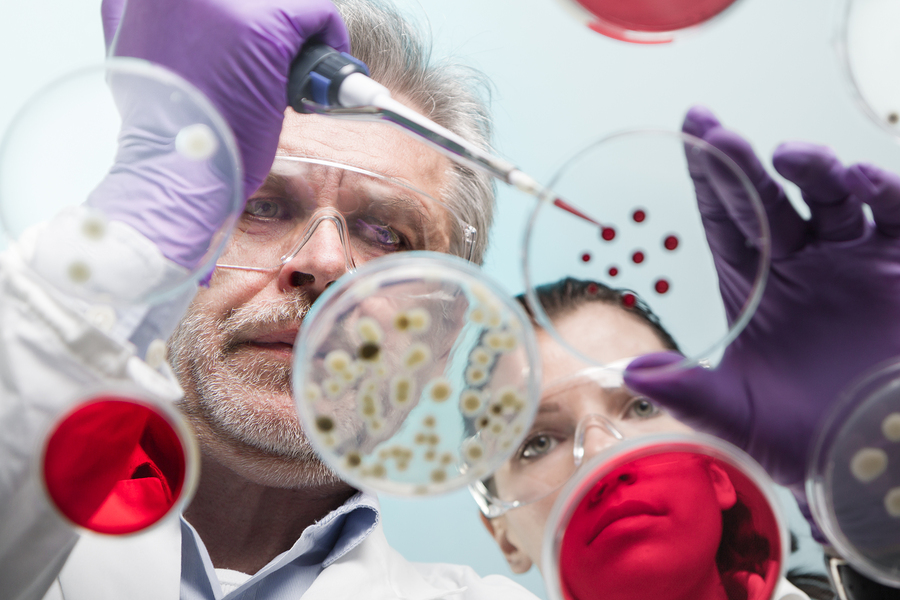- Make It Yourself Lavender Heart-Shaped Bath Bombs!
- 20 Things You Never Knew About “Down There”
- 12 Best Foods For Those Suffering From Arthritis Pain
- 12 Personal Hygiene Mistakes Almost Everyone Makes (Mom Never Told You About #4!)
- 15 Medicinal Plants And Herbs From The Cherokee People
- 12 Mind-Blowing Benefits Of Drinking Coconut Water During Pregnancy
- 12 Outstanding Winter Foods That Won’t Fatten You Up Like A Christmas Turkey
What Are Enzymes – And Why Are They So Important?
Many of our articles focus on the importance of vitamins, minerals, and macronutrients like proteins— and rightfully so. These compounds are, after all, what keeps you alive and ensures your body with the nutrients it needs to produce energy and function properly. But how does your body put those nutrients to use, anyway? The answer: Enzymes. Let’s explore what enzymes are and why these often overlooked compounds are so essential for our health.
What the heck IS an enzyme, anyway?
An enzyme is a special type of protein which acts as a biological catalyst. What this means is that they can speed up the rate at which chemical reactions take place in the body. An enzyme targets a particular type of molecule called a substrate, and converts into a product.
Enzymes help necessary chemical reactions occur to make chemical compounds more useful. Enzymes are used in digestion (which we’ll get into in a second) and also in commercial applications like household cleaning products which help break up food residues. Another example are proteases, a type of proteolytic enzyme which can act as a meat tenderizer by breaking up the peptide bonds between the amino acids in meat, resulting in a more tender meat that is easier to chew.
Different Types of Enzymes
There are three primary types of enzymes, each serving different purposes: food enzymes, metabolic enzymes, and digestive enzymes.
1. Metabolic Enzymes
Metabolic enzymes are produced endogenously (meaning inside the body) and help regulate essential functions in the body like the growth of new cells, and maintaining proper function of blood cells, organs and tissues.
Continue to Page 2
As the names suggest, digestive and food enzymes deal with breaking down the nutrients in the foods you eat into a form that is usable for the body.
2. Digestive enzymes
Digestive enzymes are produced internally in the pancreas and sent to the small intensities and stomach to initiate the process of digestion. There are different types of digestive enzymes for different types of nutrients. For example, protease targets proteins. Lipase and amylase are intended for fats and carbohydrates, respectively.
3. Food enzymes
Food enzymes, on the other hand, are produced externally meaning that you get them from the food that you eat, as well as any nutritional supplement products you might be using. Examples of food enzymes include lactase which breaks down lactose in dairy products, cellulase, which targets cellulose and fibrous material in fruits and vegetables) and glucoamylase, which breaks down the sugar in grains known as maltose.
READ ON: These Foods Will Boost Your Psychological Well-Being
Why Are Enzymes So Important?
Both digestive and food enzymes are necessary to make sure that you benefit from the nutrients you take in. You can eat all healthy food you want, but if you cannot break down the nutrients into a digestible form, it will not do you any good. In fact, without enzymes nothing in your body would really function at all.
In a sense, your body can be understood as a structure containing a constant series of tiny chemical reactions that keeps everything going both within and between your cells. Your body contains over 3,000 types of enzymes, each designed to facilitate a specific chemical function. These enzymes produce the necessary chemical reactions up to a million times faster than your body would be able to without them. Simply put, if you did not have enzymes, none of the natural processes in your body would happen fast enough to keep you alive.
We hope this little guide has given you a greater appreciation for how vital enzymes are. As the unsung heroes of the digestive process, metabolic process, and every other process in the body, enzymes work quietly around the clock, making sure everything runs as it should.
References:



































